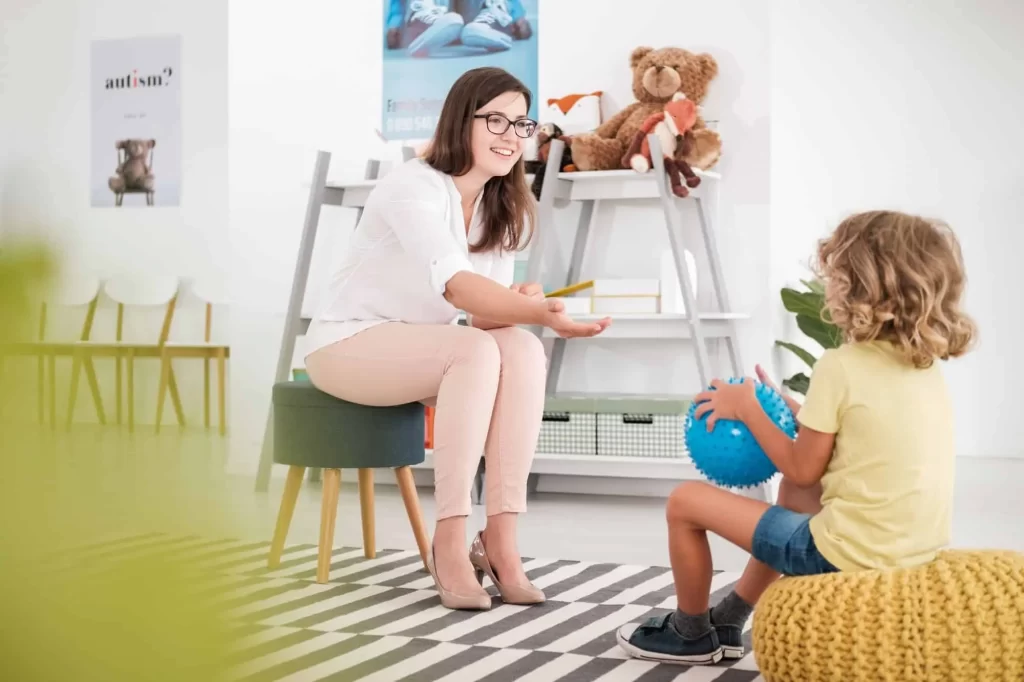Who does ADHD affect?
Did you know that ADHD is one of the most common neurodevelopmental disorders? It’s usually first diagnosed in childhood and often lasts into adulthood. Assessment for ADHD involves meeting specific behavioural patterns rather than medical testing, which has led to an increasing number of adults being diagnosed whose symptoms were missed or overlooked as children.
Whilst it’s normal for young children to have trouble focusing and behaving at times, kids with ADHD don’t simply grow out of it – the symptoms continue as they age. Symptoms can be quite severe and have been known to cause difficulties at school, at home, and with peers.


What is ADHD?
Attention Deficit Disorder (ADD), more commonly known as Attention Deficit Hyperactivity Disorder (ADHD) affects someone’s ability to prioritise, process, integrate, organise and recall information when needed. It also affects a person’s ability to notice the passage of time.
Some people may be diagnosed with the hyperactive variant of ADHD, where it is difficult for someone to sit still, avoid fiddling, or rush off to the nearest distraction. Others may have the inattentive variant of ADHD, which is marked by such behaviours as staring into space, daydreaming, or merely lapsing in focus. This type is frequently missed, and can sometimes be hard to distinguish from mild epileptic seizures. Inattentive ADHD is often missed by parents, teachers and health professionals. There is also a third, mixed type of ADHD, which is marked by people presenting with both hyperactive and inattentive symptoms. Due to the difficulty in identifying these behaviours, formal ADHD assessment and diagnosis is often delayed.
ADHD is commonly treated with stimulant medication which can be very helpful, yet medication does not solve all the issues for affected individuals.
The Multisensory Approach to Learning
for ADHD & ADD
Students with ADHD find it difficult to learn in a standard classroom environment. We have found that the multisensory approach helps students with their written expression as the physical manipulation of ideas makes it easier to organise and retain complex material. We have used this approach for high school and tertiary students.
Some tools and conceptual frameworks which we find helpful for students with ADHD include the use of movement, different coloured cards, speaking aloud rather than just reading and writing silently, and the breakdown of tasks into smaller chunks.
Our approach is multisensory as we employ movement, touch, sight, hearing and speech to reinforce learning and engage students. We tailor our lessons to account for a student’s attention span and need for rest, and we are ready to move with students and extend their engagement while being sensitive to flagging interests and moods.
Due to their experiences, students with ADHD may feel that they can never succeed and become disengaged or avoid challenges. We are sensitive to their emotional struggles and seek to make each session a positive experience for them.


Multisensory Therapy and Tutoring for ADHD & ADD
Many parents of children with ADHD and adults with it look for tutoring to bridge their learning gaps. Some of our students have attended standard tutoring services for a long time without experiencing significant progress. This is where the individual therapeutic approach of Neurosensory can help.
The multisensory approach uses practical strategies in the auditory, visual and kinaesthetic (movement/touch) pathways to maximise learning.
How do our MSL tutors support students with ADHD?
They are encouraged to:
- Be patient
- Build revision into every session
- Be flexible with the amount of work and break the learning tasks into small chunks
- Vary the presentation and use games to capture attention
- Use movement throughout the session so no one is sitting for the whole time
- Be consistent with expectations and guidelines
- Maintain a positive teaching environment
- Never scold students when their attention wanders
- Track progress and reward good work
- Know when it’s time to move on to another task

ADHD Tutoring Options
We offer two options when it comes to ADHD tutoring, ensuring that primary, secondary, and university students and beyond are able to access the support offered by Neurosensory.
In-Person Tutoring
In-person tutoring involves meeting in a controlled learning environment, similar to the physical classroom, which can provide less distraction. In-person interaction can also help students with ADHD learn how to navigate social situations and interact with their peers.
Online Tutoring
Online tutoring allows students to access help from wherever they are, whether they live outside of Sydney or have difficulties with transportation. It can also allow for more flexibility around school and social commitments, as we tend to lead busy lives.
Do you or a loved one require some learning assistance as a result of an ADHD diagnosis? Our ADHD tutors are ready and waiting to help.

ADHD & ADD Assessments For Both Adults & Children
There are currently no medical tests for diagnosing ADHD. Instead, it is diagnosed through the observation of behavioural symptoms. To be diagnosed, children must present with at least six symptoms from either (or both) variants of ADHD, whilst older adolescents and adults must present with at least five. Symptoms must have appeared before age 12 and have continued for at least six months.
At Neurosensory, we can provide recognised screening assessments and letters of recommendation to identify people who may have ADHD. After our initial assessment, we can also refer them to appropriate health providers for diagnosis and any follow-up clinical treatment.
We stress that only medical and psychological professionals can provide a formal diagnosis.
Frequently Asked Questions
If you are concerned about your own or a loved one’s behaviour, your GP is a good place to start for an initial consultation. They may refer you or your child to a paediatrician, psychologist, or psychiatrist for an ADHD diagnosis. Alternatively, you can book a child or adult ADHD assessment with us at Neurosensory, and we can refer you to the appropriate provider for a diagnosis if required.
During a child or adult ADHD assessment, you may be asked to undergo:
- Interviews (with yourself, your child, and/or with other primary carers of your child if applicable)
- Behaviour checklists
- Developmental, learning, educational, and/or IQ checks
- Language, speech, and movement checks
Yes. Many people find that having a formal diagnosis helps them to make sense of their life and why they do things in a particular way. It can also enable them to find an effective treatment plan, which can be life-changing in many respects.
Most children won’t be evaluated until they’re school age, but it is possible for kids as young as four to be diagnosed with ADHD. For many, being diagnosed as young as possible ensures that they have the right supports in place to get them through school as successfully as possible.
Yes, providing the tutor has experience with students who have ADHD. Tutoring can improve school performance in a number of ways, providing students with tools for academic success whilst making attention and organisational issues seem less daunting.
People with ADHD learn best when instructions are kept simple and structured, when props and other visual aids are employed, when the pace of lessons is varied, and when different kinds of activities are incorporated. The multisensory approach is highly useful for helping people with ADHD to learn, as it utilises movement, touch, sight, hearing, and speech to solidify the skills being taught.
The Orton-Gillingham multisensory approach helps those with: Autism/ASD, Dyslexia, Dysgraphia, Dyscalculia, Reading remediation (students without a learning disorder), Generalised learning disorders, Maths, and ESL.
Based in Campsie, we are just around the corner from Belfield, Belmore, Ashbury, Canterbury, Croydon Park, Clemton Park, Earlwood, Ashfield and Hurlstone Park.
More Senses = More Engagement for People with ADHD
Are you a visual learner? An auditory learner? A tactile learner? Or perhaps a kinesthetic learner?
People with ADHD are often diverse learners, and what works perfectly for one person is unlikely to work perfectly for someone else. Multisensory learning is key for engaging these types of learners, and it provides our tutors with the ability to combine sensory modalities to aid in skill building and retainment.

Are you ready to explore the possibilities of multisensory learning?
The team at Neurosensory is committed to helping children and adults with ADHD find academic success. Whether you’re looking to have a loved one assessed or they already have a diagnosis and you’re looking to provide them with support in the form of an MSL tutor, we’re here to help.
